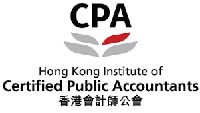Congrats to the Ministry of Law, UNCITRAL Academy, Singapore International Arbitration Centre, Singapore International Mediation Centre, Singapore International Mediation Institute, Singapore International Commercial Court, the Centre for International Law at the National University of Singapore, Singapore International Dispute Resolution Academy, Maxwell Chambers, Chartered Institute of Arbitrators Singapore branch, Financial Industry Disputes Resolution Centre plus the International Chamber of Commerce International Court of Arbitration, the American Arbitration Association’s International Centre for Dispute Resolution (amongst others) and not forgetting the extensive support from the private sector and the Asia Pacific Institute of Experts – or the MOL, UNCITRAL, SIAC, SIMC, SIMI, SICC, CIL at SMU, SIDRA, MC, CIArb, FIDRec, ICC, ICDR, APIEx – for a breathless week (28 Aug – 1 Sep) of discussions on how best to resolve international disputes across the region.
The Singapore Convention on Mediation was signed in 2019 and now has 56 signatory countries (some are still to ratify it). Essentially, the Convention does for mediation what the New York Convention, signed in 1958, does for arbitration, namely enabling deals mediated / arbitral awards decided in one country to be enforced in another.
Understandably therefore, much of this, the third such event, focused on mediation whilst recognising that it was just one of several dispute resolution techniques.
I was particularly interested in Investor State Dispute Resolutions (ISDR) where I have acted as an expert witness in several arbitrations. I have been cross – examined in person and sat in a “hot tub” exchange of views with the other side’s expert in front of the tribunal (both experiences are unusual). Three points to make:
- In such cases, yes, mediation should first be tried (it can be quicker, cheaper and less confrontational than arbitration) but the state voluntarily paying an often large sum to Johnny Foreigner then becomes the responsibility of a suddenly conspicuous minister. It can be more comfortable from his / her perspective if the decision is taken out of his / her hands by going to arbitration where payment pursuant to the award is mandatory.
- When involved in any negotiations, parties always need to have some idea of the impact of the alternatives. They are therefore increasingly taking informal expert advice at these early stages too. And this includes mediations!
- As you would expect, SCW3 (sorry, I can’t stop with the abbreviations) was a huge and hugely necessary event.
This comes to you from a Hong Kong recovering from the hardest rain since records began in 1884. My return from Singapore last weekend was delayed by the first No. 10 typhoon signal since 2018.
Let’s hope that the weather behaves when HK Arbitration Week comes round next month.








